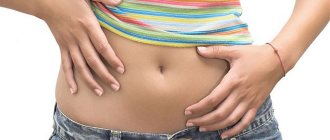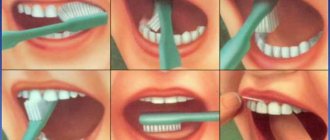Children's belching, like adults', is caused by natural processes occurring in the body. The healthy process of digestion of food, subsequent movement through the digestive tract is accompanied by the removal of excess air from the body. The phenomenon occurs through the mouth. Occasionally recurring, odorless belching, accompanied by a lack of discomfort, indicates that there is no reason to worry and seek medical help.
If belching is frequent, has bad breath, is accompanied by heartburn and pain in the stomach, you need to consult a doctor to make a correct diagnosis. Children of different age groups suffer from different types of belching for a variety of reasons.
Causes
The process of digesting food is not as silent as it seems. Belching is a side effect of digestion, the result of gases formed. It can occur up to 10 times a day and this is normal. The reasons why uncontrolled air escape occurs are divided into:
- Physiological: mobility before eating and talking while eating;
- tight clothes;
- uncontrolled eating;
- unfavorable microclimate (nervousness);
- non-compliance with the regime;
- product incompatibility;
- Smoking in the presence of a child can cause belching.
- Pathological. This type of cause includes the following diseases: gastritis;
- hepatitis;
- hiatal hernia;
- pancreatitis;
- stomach and duodenal ulcers;
- digestive system disorder;
- imbalance of intestinal microorganisms;
- curvature of the spine, stoop.
Often the manifestation of diseases is not limited by the release of air. Bloating, heaviness in the stomach, pain, nausea, and bad breath occur. If at least one of the signs appears, you should immediately consult a doctor.
You need to know that consuming smoked, fatty, fried foods, and carbonated drinks can provoke symptoms of diseases of the digestive system.
Prevention of regurgitation
The basis for preventing the occurrence of an unpleasant symptom is proper feeding, carried out on time. If the baby does not cry before eating, it means that air ingress will be minimized.
Tummy massage
Before eating, place the baby on his tummy 30 minutes before eating. The action allows the accumulated gases to escape and not provoke bloating. Light stroking without pressure will help. The massage is performed using a warm towel. Dry heat helps the intestinal tract relax and allow air to escape easily through the anus.
Body position
The cause of burping is often due to improper positioning of the body during feeding. To prevent air accumulation, the baby should eat while in a semi-sitting position.
Positive points if the body is positioned correctly:
- The nutrient fluid does not linger in the esophagus and immediately enters the stomach.
- The incoming air does not accumulate at the bottom, but immediately exits upward.
- The air escapes much easier.
- The bottle with artificial formula is positioned vertically in relation to the baby, there is no air in the nipple.
A properly selected mixture will help normal digestion of food. There will be no disturbances or accompanying symptoms. If there is additional food in the diet, the moment of belching is discussed with the doctor.
Amount of food
Belching can occur from overeating. It is worth reducing the amount of food while increasing the frequency of meals. This will allow the stomach to cope with the incoming food and be free to accept the next portion. Absorption will be better, and belching will no longer bother both the baby and the parents.
After meal
Do not rush to put your baby to bed immediately after feeding. Try to hold it slightly in your hands in an upright position so that the accumulated air can move away naturally and not cause discomfort.
For prevention, it is necessary to feed the child correctly, not at the moment when he himself wants it, but a little earlier, before tears begin to appear. To determine the frequency of feeding, the mother needs to make a special schedule. If the baby does not cry before feeding, then air swallowing will not occur.
Abdominal massage
Before you start feeding your baby, place him on his stomach and hold him for up to 5 minutes. The surface should be flat; a regular table will do. It is also helpful to lightly stroke the belly before feeding. The movements are made without pressing, simple stroking clockwise.
You need to massage your tummy for up to 10 minutes; it is best to use a clean, warm towel and massage through it. This technique improves the passage of gases, and a warm towel relieves pain and relaxes the intestines.
Belching in infants occurs due to incorrect body position. During feeding, the head should be higher than the stomach, the body should bend only at a right angle. If the mother feeds the baby while lying down, then this method should be abandoned. The vertical feeding position has the following advantages:
- Milk and other liquid flows directly into the stomach.
- The air stays at the top.
- It is easier for the baby to burp the air that appears in the milk.
When bottle feeding, the bottom of the bottle should be at the top, the milk should completely fill the nipple, and the baby should wrap his mouth around it. Due to proper feeding, air will not get inside and the likelihood of belching will be reduced.
Selection of mixtures
The ideal nutrition is breast milk, but if it is not available or feeding is impossible using this method, then it is necessary to choose the right formula that does not cause hiccups.
If food is already being used, but constant regurgitation begins, you should discuss the diet with your doctor. The doctor may recommend replacing standard nutrition with medicinal mixtures. Among the effective and popular ones are “Frisoma” or “Enfamila AR”.
Amount of food
A common cause is overeating in children. There is almost no such thing during breastfeeding, because children adapt to the breast and independently control the volume. If feeding is carried out using formulas, then the baby is not able to control the volumes. To avoid regurgitation, be sure to follow the manufacturer's instructions and not cook more than required.
After meals
After feeding, it is forbidden to immediately put children down; it is recommended to carry them in an upright position for about 15-20 minutes. Due to this, the air plug is pushed out, but this squeezes out a small amount of milk. With a sharp and rapid change of position, frequent belching and regurgitation begins.
The volumes can be very large, but if the mixture is white and visually similar to milk, then there is no reason to panic. By 7 months of age, the digestive system begins to adapt to food, and the discomfort goes away.
Frequent burping of air in a child
Involuntary release of gases from the stomach or esophagus through the mouth is repeated frequently, but there is no unpleasant odor? The cause may be swallowing air. The penetration of 2-3 ml during swallowing movements is considered normal. It normalizes the pressure inside the stomach, then gradually comes out in small portions through the mouth. Penetration of a large amount may indicate pneumatosis of the stomach. Frequent belching can be caused by the following reasons:
- talking while eating;
- active games immediately after eating;
- oral diseases;
- difficulty breathing through the nose;
- nervousness;
- excessive swallowing of air;
- abuse of carbonated drinks and chewing gum.
There are no problems in the process of digesting food, frequent “belching” does not have a strong odor, unpleasant taste and is not accompanied by pain. Frequent belching in children can be complicated by a neurotic nature and appear at any moment. Such a manifestation is considered a pathology and requires treatment.
Etiology
Belching with air is nothing more than the removal of excess gases accumulated in the intestinal loops through the mouth. As a rule, this happens involuntarily. Every person, not only children, but also adults, can periodically suffer from such manifestations.
The root cause, of course, is excessively swallowed air. For example, it came with food, or stagnated in the intestinal loops due to fermented foods.
The process itself occurs after contraction of the smooth muscles of the stomach, which leads to contraction of the cardiac sphincter. So, for a one-year-old breastfed baby, this can be called normal. At the moment of sucking actions, they swallow air. Belching helps to get rid of it. The problem resolves itself as the baby grows. In children after one year of age, such complaints rarely appear during the normal functioning of the gastrointestinal tract structures.
How to correctly explain what is happening?
When a similar situation occurs in children - some adults it
touches. But for an older child, not only do relatives make comments about the culture of behavior, he himself feels awkward. Moreover, such a situation can happen anywhere: while eating, on the street, at home. What should parents do, how to explain why this happens to them and not harm their baby? It’s very simple, adults need to remember their childhood and talk to children in their language:
- Nothing bad happens. All day long you spend strength and energy, to replenish it you need to drink water and eat food. When you eat and drink, air droplets that we usually breathe enter the tummy along with the food. They consist of small particles: nitrogen and oxygen.
- Do you like the dark?
Small particles don't like it. When gases If a child burps, you need to explain to him why this is happening, they get into your tummy, and they try with all their might to get out of there. The fastest road is the one they already know. So they come out through the mouth. - Many children love fizzy drinks. They bite funny on the tongue and neck, and are very tasty. But those who drink a lot of them hiccup and burp funny. It all happens because of the substance that makes plain water carbonated. It's called carbon dioxide. Once in the stomach, it tries to return back.
The most important thing is to let the baby know that there is no reason to worry. This could happen
happen to everyone and he's fine. But parents themselves must remember that while their baby is lying across the bed, strong burps relieve him of nighttime abdominal pain. When the child has grown up, burping can lead the child to an unpleasant situation. Teach him not to be shy, if this happens in front of strangers, to cover his mouth with his hand and apologize for the inconvenience.
First difficulties in the postpartum period.
If your baby is often bothered by regurgitation, gas and colic, then he may like this position and over time he will be happy to “ask” to sit on your shoulder to alleviate his condition.
But what you shouldn’t do with your baby after feeding is sudden movements. After eating, give him rest.
Do not shake the baby, do not play with him, and do not try to evoke a generous smile so that the child does not twitch sharply with a big sigh. Moreover, laughter in older infants can turn into prolonged hiccups or hysterics. It is often difficult to stop this, especially before bedtime, when the child’s nervous system is exhausted.
Let the food digest a little, don’t pump too much. Motion sickness is very useful, but there should be moderation in everything.
It is important to wean your baby from any motion sickness during a walk, or rather, do not accustom him to it. In the future, you will undoubtedly appreciate this advice of mine, especially in winter, even if you are skeptical about it at first.
If there is a need to urgently wash the baby or change his clothes during or immediately after feeding, then hold him at least a little in the manner described above to induce a burp, and only then take the necessary actions, but carefully.
Belching and stomach pain
Pain always indicates a malfunction of some organ. And if it appears against the background of belching, it is worth thinking about the reasons for this manifestation. Why does this happen and how to help your baby? There are two main questions that parents need to know the answer to.
The most harmless reason is poor nutrition, although in many cases abdominal pain signals problems with the gastrointestinal tract. Stomach pain and belching occur with the following diseases:
- stomach (ulcer);
- pancreas (pancreatitis);
- gallbladder (cholecystitis);
- duodenum;
- cancer.
Any problem of the gastrointestinal tract can be accompanied by constant pain in the abdomen, nausea, fever, vomiting, and upset stool. It is important to know that this condition is a pathology. In order to provide the necessary treatment in a timely manner, you need to contact a specialist, conduct an examination and confirm the correct diagnosis.
Diagnostic methods
Diagnosing an infant is especially difficult because they cannot tell what symptoms are bothering them. The doctor asks the parents about their general condition, what suspicious symptoms they noticed, and what the temperature is. Then he conducts an examination and asks parents about feeding issues.
After this, a series of examinations are prescribed; they are also prescribed for older children after an oral interview.
Usually one, or more often several, diagnostic methods are prescribed:
- general blood test - allows you to identify the presence of an inflammatory process and evaluate other indicators;
- other blood tests, if necessary after general blood tests;
- stool analysis;
- gastroscopy;
- ph-metry – to determine the level of acidity;
- Ultrasound of the abdominal organs;
- colonoscopy;
- respiratory tract studies.
Gastroscopy is the most accurate method for diagnosing gastrointestinal diseases, but it is poorly tolerated by small children; first you need to make sure that the child is conscious and able to lie still and not move during the procedure.
Based on the results, the doctor makes a diagnosis. All these diagnostic methods are not prescribed. After an examination and medical history, the doctor makes an assumption about the cause of the belching, then, if it turns out to be gastrointestinal diseases, he prescribes a study of the digestive system; if there is a suspicion of bacterial infection, a study of the respiratory tract.
The most difficult cases are when examination reveals a neoplasm in the gastrointestinal tract. After a detailed ultrasound, CT, MRI, and gastrobiopsy (chemical analysis of a piece of mucous membrane) may be prescribed.
Belching and vomiting
If a child has belching with vomiting, urgent medical attention is needed.
Belching in children and vomiting is a signal to provide emergency assistance and consult a doctor. Often the above symptoms are accompanied by heartburn and fever. There are several reasons for this condition:
- Pathologies of the gastrointestinal tract. With insufficient activity of the digestive organs, nausea occurs.
- Binge eating. The baby is worried not only by the symptoms described above, but also by an unpleasant odor and discomfort in the stomach area.
- Increased acidity. Undigested food particles and a sour taste are added to the “empty” burp.
- Impaired motor function of the stomach. Vomiting with a sour taste and rotten odor.
Hiccups and belching
Hiccups are caused by spasms of the diaphragm. An involuntary breath is accompanied by a sound and appears in children with hypothermia, fears, or worries. Regurgitation is a signal of a digestive system disorder and most often occurs due to oversaturation.
Two symptoms that, on the one hand, are harmless, but on the other, can signal an unpleasant complication. Did hiccups appear in the background of belching? Your baby has eaten too much or hasn't drunk enough water. There are cases when the symptoms described above are signs of airbrushing. Frequent repetitions of two symptoms require constant monitoring, contact with a specialist and, possibly, treatment.
Children from 2 to 5 years old
Many children aged 2-3 years begin to go to kindergarten. During adaptation, the child may cry frequently, which causes muscle spasms, narrowing of the lumen between the esophagus and stomach, which causes belching. Gradually he calms down and the unpleasant symptom goes away.
In addition, many children in the kindergarten often begin to get sick. Due to a cold, breathing is impaired, which causes compression of the muscles of the esophagus.
One of the provoking factors for belching is allergies. In addition, it can be caused by the following pathologies:
- helminthiases;
- inflammation of the pancreas and gallbladder;
- gastritis;
- scoliosis;
- neurosis;
- hepatitis;
- disturbance of intestinal microflora;
- hiatal hernia;
- pathologies of the locomotor system;
- diseases of the teeth and oral cavity;
- ENT infections, including chronic tonsillitis;
- cough of various origins;
- nasal congestion;
- enlarged tonsils;
- pathologies of the nervous system;
- gastroparesis;
- neoplasm of malignant and benign origin.
There may also be non-pathological causes of belching, such as:
- bending over and physical activity after eating;
- tight clothes;
- drinking a large amount of liquid;
- excessive excitability, for example, caused by watching cartoons while eating, hysteria.
Belching and fever
A child’s temperature always causes concern, and against the background of regurgitation it indicates
An increase in body temperature indicates the occurrence of pathological processes in the digestive system
occurring pathological processes in the digestive organs. Poisoning, inflammation of the walls of the stomach and intestines are complications accompanied by two signs at the same time. They are often accompanied by severe nausea, vomiting, and upset bowel movements.
Often the signs described above are symptoms of an infectious disease. Rotavirus and any intestinal infection are most common in children. In the first and second cases, it is important to determine the source that caused the unpleasant symptoms and begin drug therapy.
When is the best time to see a doctor?
In addition to vomiting, other reasons are noted that indicate the need to diagnose an infant:
- Significant weight loss.
- Irritability and restlessness.
- Constant crying.
- Poor sleep and appetite.
- Regurgitation occurs with large amounts of food.
A change in the color of the discharge is examined; it is necessary to prevent the occurrence of pathology in the internal organs responsible for digesting food.
Pyloric stenosis
Abnormalities in the stomach are a congenital disease. With pyloric stenosis, a narrowing of a certain area of the organ occurs. The result is frequent loss of air, hiccups and lack of weight gain.
Hernia
The occurrence of a hernia anywhere on the surface of the diaphragm contributes to compression of the intestines. There is pressure on the stomach, food goes back.
CNS dysfunction
Improper functioning of the central nervous system in newborns occurs during difficult childbirth. Additional causes include difficult pregnancy and congenital defects. Symptoms appear: frequent whims, profuse sweating, intestinal colic, regurgitation and excessive gas formation.
Infection
The appearance of an infectious disease in the body also contributes to the manifestation of belching. Meningitis provokes inflammatory processes in the human brain, hepatitis disrupts the functioning of the liver.
Heredity
Heredity plays an important role in the manifestation of symptoms. If a child has a predisposition to systemic disorders of the functioning of internal organs, their frequent manifestation is quite natural.
Kidney damage
Pathological processes occurring in the kidneys of a newborn can cause belching and disruption of the digestive system.
Poisoning
Food poisoning not only in children, but also in adults causes discomfort and discomfort. Discharge of an unpleasant odor, with a yellowish tint. There are blood spots in the stool.
The occurrence of any symptom that goes beyond the norms of a healthy reaction of the body cannot be treated with home methods. Consultation with a doctor and diagnosis is required.
Taste and smell of burps
When regurgitating, it smells unpleasant and leaves a taste in the mouth - the situation is not easy. The taste depends on what causes this condition:
- sour - increased acidity;
- bitter - bile entered the stomach;
- smells of hydrogen sulfide - stagnation in the stomach, which leads to fermentation;
- acetone - increased intoxication of the body caused by poisoning and digestive disorders.
Parents must monitor the baby. If nausea, fever, upset stool, or severe abdominal pain are added to the unpleasant aroma, you will need to consult a specialist.
Belching in children at different ages
Up to a year
Regurgitation in babies from one and a half months to 12 months is considered a normal process and does not require drug therapy. For the first 6 months, constant belching after each feeding is normal. After six months the situation improves, and parents can help. To feed a 1-6 month old baby, create a calm environment, do not disturb the diet, after the baby has eaten, you need to hold him upright. If a 1-10 month old baby does not gain weight, he is bothered by pain in the tummy, cough, and needs to consult a doctor.
After a year
The culprit of regurgitation in a one-year-old child is nervous excitability. Mobility and slight excitability easily provoke regurgitation and digestive complications in a one-year-old toddler. In addition, do not forget about:
- adenoids;
- accumulation of saliva due to teething;
- runny nose;
- allergies.
If the signs are tormenting your baby, preventing him from developing and sleeping peacefully, consult a doctor.
2 years
In addition to the physiological origin of belching, there is also a psychological one. This year the baby begins to worry and be afraid. Such nervous situations can lead to eating disorders with fever, nausea and regurgitation. Observe carefully, the vomit begins to smell of hydrogen sulfide, bitterness, most likely a rotavirus infection, an intestinal infection.
A review of your diet will help straighten out the situation. Remove foods that cause increased gas formation, constantly monitor the amount of fluid you drink, and do not overfeed your child.
Child 3
By this age, the digestive process has formed, and there is no need to talk about physiological disorders. The child is tormented by belching - we are looking for the cause. As a rule, these are various diseases of the digestive system. The main culprits of the unpleasant symptom:
- conversations, mobility during feeding;
- respiratory diseases (tonsillitis, adenoids, tonsils);
- a large accumulation of saliva caused by complications in the digestive tract or oral cavity.
Finding out the cause is the main thing in treating a child. The feeding process, products do not affect the reduction of belching, seek medical help.
Already 4
This age is characterized by overeating, unstable emotions and parental disruption of the daily routine. The child is tormented by regurgitation, consultations with a pediatrician, neurologist, or ENT specialist will not harm. No pathologies have been identified; it is necessary to examine the digestive organs.
A proper daily routine is very important for children. Parents must ensure that the baby eats on time; food should not be washed down. Try to walk with your child more often on the street, in the park, play active games and be sure to take a nap during the day.
5 years
A preventative measure is proper nutrition.
At the age of five, regurgitation attacks occur due to gastric juice entering the esophagus. Maintaining proper nutrition will help you avoid unpleasant moments. Fried foods, carbonated drinks, chocolate, spices, non-compliance with the temperature of food - all this should be excluded from the diet of children. Forbid playing after feeding, do not allow snacking or eating on the go, watch the amount of liquid you drink.
Burping at 6
Complications in the functioning of the digestive system are the main culprit of regurgitation. The most common inflammation of the esophagus at this age is caused by the reflux of stomach contents into it (reflux). You won’t be able to fix the problem on your own; you will need to consult a specialist and take medication.
Pathologies of the liver, gall bladder, and spleen also lead to an unpleasant sensation, which is complicated by painful sensations. For help, you need to make an appointment with a doctor.
Burping at 7
The period from 6 to 7 is difficult for children. They are going to first grade. New acquaintances, new knowledge, as well as experiences, stress, snacks, dry food. They are the culprits of regurgitation in some babies. Parents should monitor the proper nutrition of their first-grader. For control, be examined by a gastroenterologist once a year.
Burping at 8
Very rarely, regurgitation at this age occurs due to congenital pathologies; usually they are acquired. As a result of poor nutrition, decreased immunity, and low mobility, the tightness of the valve between the stomach and esophagus may be disrupted in a child.
Diseases of the liver, kidneys, stomach, and intestines are the most common culprits of the pathological condition. Violation of the digestive processes leads to stagnation of the food coma, fermentation and, as a result, irritation of the walls of the digestive organs. The child has a stomach ache and feels nauseous.
Burping at 10
At the age of ten, there are more than enough reasons for the appearance of regurgitation without an unpleasant aftertaste or with it (rotavirus, ulcers, gastritis, overeating). Complications in the functioning of the digestive organs lead to a similar symptom. For example, with inflammation of the walls of the stomach, hiatal hernia and other complications, regurgitation is constant. Feeling more difficult with fever and cough. To determine the correct diagnosis, you must contact a specialist.
If the doctor does not find any abnormalities in the functioning of the internal organs, the culprit of the unpleasant symptoms is poor nutrition. Review your child’s diet and remove “unhealthy” foods.
How to cause burping after feeding?
I dare to assure you that your baby will burp after eating in the first months of life in any case. Although insignificant, it will still be there. Therefore, to prevent air from the esophagus from moving into the intestines and starting to cause discomfort to the baby, you need to help him get rid of it.
- Immediately after feeding, carry the baby in a column. Lean it against you in an upright position and place the head on your shoulder. Walk in this position for about 10 minutes. If the air does not come out and the baby is still restless, then take a short break and then carry again.
- If the baby is no longer a month old and you are not afraid to lay him on his tummy (When to lay a baby on his tummy), then do it. When placing the baby on the tummy, the muscles tense, the baby takes the ideal position for air to escape, and a burp occurs. Laying it on your stomach can be alternated with wearing it in a column.
- Stroking and massages. Lightly stroking the back while the baby is lying on his tummy will only speed up the release of air. A light abdominal massage during and after meals will also not be superfluous.
- Don't distract your baby while feeding. It is better to choose a separate place for this and tell your relatives not to interfere.
- Don't let your child go hungry. Quite often this occurs when children eat on a schedule rather than on demand. The child is hungry. And he needs to endure another half hour until his mother puts a bird in her notebook. Naturally, then he will hastily eat and gasp for air.
- If bottle feeding, use nipples with a narrow opening. Hold the bottle correctly when feeding. It should be virtually vertical. If you are breastfeeding, try to ensure that your baby latch onto the nipple well.
That’s basically all, there’s nothing wrong with belching and there’s no need to make a tragedy out of it, it’s a completely natural process.
To get rid of air in the baby’s stomach, it is useful to place it on the stomach before feeding.
To provoke a burp, the child needs to be placed in such a position that the excess air is released from the stomach. An effective way is to place the baby on the tummy on a hard surface before eating. This will help burp the air before the baby has eaten.
After feeding, you need to give the baby a vertical position, you can put it on your shoulder and lightly massage the back. The burp should come out quickly and this position will prevent regurgitation of milk.
It is useful to carry the baby at this time; when moving, it will be like a tummy massage and training of the vestibular apparatus. It happens that no matter how hard parents try to provoke burping after feeding, they fail. Not all children swallow a lot of air in the first months of life. If applied correctly and if the baby is calm, he may not swallow excess air, and then there will be no belching. Watch the baby, if he is calm, comfortable, nothing bothers him, then there is no need to worry.
It happens that a month-old baby has poor appetite, colic, and profuse and frequent yellow regurgitation. This indicates a malfunction of the gallbladder and stomach. This phenomenon occurs more often with artificial feeding.
At the end of feeding, place the baby on your shoulder again and hold him there until all the air bubbles and bubbles are released.
Occasionally it happens that the air does not come out. If the child is calm, then he is not there. And if he “complains,” then lightly give him a horizontal position and lift him onto your shoulder again.
Under the weight of his weight, the baby will constantly fall down, and you will constantly lift him up. In this way, an additional massage is performed on the baby’s tummy and body. Move your baby from one shoulder to the other if you get tired quickly. Better yet, give it to dad or someone else, showing this technique.
- This method of carrying an infant frees him to a large extent from regurgitation, gasping and colic; trains his vestibular apparatus; massages the abdominal and back muscles, strengthening them.
- The umbilical hernia is reduced faster and the spine is strengthened. The baby will begin to hold his head earlier and more confidently.
- If you walk with him rather than sit, he will learn a lot of new things around him. He is both pleased and interested.
Very good material in this video. I advise you to study it.
Treatment
In rare cases of unpleasant sensations, do not worry and
The need for drug treatment is extremely rare
think about drug therapy. It is necessary to establish nutrition and the situation will improve. If regurgitation occurs every hour and for more than 5 days, you need to worry and consult a doctor. Having made a diagnosis, the specialist will prescribe drug therapy:
- With increased secretion of gastric juice, alkaline mineral water is prescribed.
- Regurgitation is a concern before feeding, and not after, most likely there are not enough intestinal enzymes. A course of bacteria will correct the situation.
- An unpleasant taste bothers you, your breath smells rotten, your stomach hurts - signs of diseases of the digestive tract. Diet, enzyme therapy, physical therapy are the main appointments of specialists. Radical methods are used only in rare cases.
- If you have heartburn, reconsider the foods you prepare for your child. If dietary adjustments do not help, you should undergo a full examination.
An important point in therapy is prevention. Following simple rules will protect parents from searching for an answer to the question “why does it hurt?”
- calm environment;
- stable emotional state;
- healthy eating.
What to do?
Regurgitation is considered a natural process. Pediatricians give advice to young and inexperienced parents.
- The manifestation of regular belching should not be ignored. It is worth looking at the correctness of the baby taking the breast or bottle with artificial formula.
- If your baby cries or is capricious during feeding, try to wait and the baby will calm down. At this time, it is advisable to stop feeding, otherwise there will be a danger of swallowing additional masses of air and provoking vomiting.
- If a child overeats, it is enough to slightly reduce the amount of food, but increase the number of approaches. This mainly applies to those mothers who produce more milk than is needed to saturate the child’s body.
- If the baby fails to regurgitate on his own, he needs to be provoked. Take a short break during feeding, allowing less air to enter the intestines. Try to monitor the amount of food eaten, take a break for every 100 ml and induce an artificial burp. When breastfeeding, breaks are taken when changing breasts. The baby will not always react positively to interruption of food intake.
- There are children who do not need to burp, so it is not worth inducing an artificial burp, for fear of only causing harm.
- Pediatricians recommend light abdominal massage after feeding. The mixture is selected correctly, keep it in an upright position for several minutes.
During the massage, movements are performed in a circle and clockwise for 10 minutes. At the same time, lightly press on the stomach. To further help the baby remove gases, the young mother should slightly bend her legs and press her to her stomach.
ethnoscience
It is possible to treat children with folk recipes, but you need to approach the process with full responsibility. Traditional methods can be used for mild symptoms, if the baby is constantly tormented by a cough, heartburn, pain in the stomach, and medical help is indispensable. A few simple but effective ways:
- Cranberry juice, aloe and honey (100 g/100 g/1 tbsp) are poured into a glass of boiled water and mixed.
You need to take Raw carrots help improve digestion for 7 days, 1 tbsp. l. 3 times a day. You can repeat the course after a month and a half. - Raw apples and carrots are great for improving digestion.
- Ginger tea. Grate the ginger root and pour boiling water over it, leave for 5 minutes. You can add honey and drink it warm.
- If you are suffering from signs of an ulcerative condition, nut butter will help. It is prepared from walnuts and hazelnuts. 10 grams of nuts are crushed and poured into 100 grams of boiled water. Infuse, strain and add honey for taste. Take a dessert spoon 5-6 times before feeding.
- In difficult situations, cabbage juice works great. The course of treatment with juice is one and a half months. Cabbage juice contains methionine, which helps improve digestion. You need to drink only fresh, a quarter glass on an empty stomach.











